Here’s What You Missed…
 May 2018 Luncheon: Local Planned Giving Experts Strike Upbeat Tone about New Tax Law
May 2018 Luncheon: Local Planned Giving Experts Strike Upbeat Tone about New Tax Law
Fundraisers nationwide have sounded alarms about how the Trump Administration’s new tax law will affect philanthropic giving. But at least three local experts don’t seem overly concerned.
On May 17, a capacity lunchtime crowd attended a panel discussion sponsored jointly by AFP and the Planned Giving Council. The panel answered national speculation that the law’s higher standard deduction will would reduce many taxpayers’ motivation to itemize their taxes, and thereby take away a powerful inducement to charitable giving.
The speculation was a launching point for panelists Andrew W. Hibel (Charitable Catalyst and Founder of The Advise Us Foundation), Julie Quinlan Brame (Campaign Consultant, Milwaukee Public Museum) and Kathy Kielar (Senior Director, Major & Planned Gifts at WTTW|WFMT. Chicago).
The panelists encouraged the crowd with three main takeaways:
- For all donors who choose to itemize, the law should have negligible effect on giving motivation
- The new law will likely only affect donors of moderate-size gifts, because larger donors will likely continue to itemize
- Because of the tax cut, all donors are likely to have more capacity to give
Taking a cue from Kielar, who noted “There’s a lot we don’t know about the new tax law, but there’s a lot we can do with what we know,” the panel offered many nuggets for how fundraisers -- and planned giving officers in particular -- could thrive in the new environment. Among them:
- Make sure your organization’s executives understand how the new law may affect giving.
- Tax deductibility is still a minor giving motivation compared to a donor’s belief in the cause; the law simply makes it more important than ever for fundraisers to sharpen their case for support.
- By the same token, an infectious sense of passion is still a fundraiser’s most important tool in motivating donors.
- Indeed, fundraisers can use the new tax law’s possible disruption of philanthropy as part of the cultivation conversation, especially with loyal donors committed to the mission.
- Fundraisers should use the tax cut in conversations with corporate donors especially. “Ask your corporate prospects how the new law will influence their company’s philanthropy, and go from there” advised Kielar.
- Given the tax change, development officers should be prepared to help donors get creative with giving via a variety of vehicles. That said, “Your passion as a fundraiser is more important than your technical planned giving expertise – even when motivating planned gifts,” according to Brame, who believes every development officer can and should have a tangible goal for planned gifts.
- Hibel noted that blended roles – in which generalist fundraisers have planned giving responsibilities – are increasingly the norm, especially since Great Recession staff reductions made generalists more valuable. According to national statistics, only 8% of planned giving officers now do planned giving full time.
- Planned giving is a great tool for donor cultivation; offering donors the opportunity to accomplish more for the organization while also receiving a tax benefit can be a gamechanger in a donor relationship.
- Hibel noted that planned giving elevates all aspects of a development program – because planned gift donors tend to sizable gifts to annual funds as well.
- The panel also advised nonprofits to embrace donor advised funds and encourage their donors to start them. “There is no more powerful tool for turning ‘checkbook’ donors into more thoughtful, asset-giving philanthropists,” said Hibel.
Final thought?
“Steward your planned giving donors publicly and actively,” said Hibel. “The warm and enthusiastic recognition of planned gifts is a key strategy for motivating more.”
--Submitted by Doug Diefenbach, Owner, Diefenbach Communication Strategies
